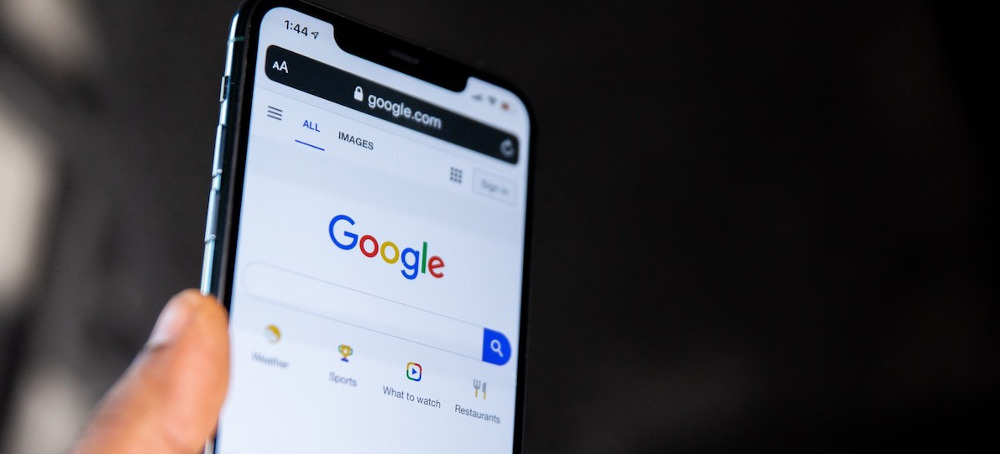
Google phone Illustration (photo: Elena Lacey/The Washington Post)
Google goes to great lengths to be your default search engine and keep you from switching. Here’s why you should make your own choice.
Geoffrey A. Fowler The Washington Post
09 November 23
There’s a setting on your phone and web browser that Google is desperate to keep you from discovering. How desperate? In 2021 alone, Google paid Apple, Samsung and others $26.3 billion to keep it buried.
That’s more money each year than McDonald’s makes selling burgers.
This setting affects who gets to track your location and watch what you look up online. It affects the usefulness of the information you see and how much of your screen is taken up by ads.
I’m talking about your search engine — what pops up the answers when you type into the search bar. Google pays the makers of phones, laptops and browsers to be your default and to stop them from even presenting you other options during setup. It’s billions for a favor.
Most people haven’t thought much about the search function on their devices, much less how Google got there. But this default funny business might make you take a second look at not only Google, but also your trust in Apple, Samsung and other companies for selling you out.
The reason we’re able to pull back the curtain on the big business of default settings is because of an antitrust trial against Google underway in Washington, one of the largest in decades. The U.S. has accused Google of illegally using payments to phone makers and others to deter people from trying alternatives like the privacy-focused DuckDuckGo and or Microsoft-made Bing. We expect a verdict early next year.
You might be wondering: So what? Google has a reputation for good results, in part because it has data from so many users. What’s so bad about making Google the default?
What we’re learning from the trial flips that question on its head. If Google’s so good, then why does it need to spend as much as all the Big Macs combined to make sure we never even consider the alternatives? What have we been missing while Google has been our default? And how would we know if something better came along?
I, for one, changed my search engine because I don’t think any search engine can be the best without the best privacy practices. But even if you’re not interested in breaking up with Google, the choice ought to be yours.
The power of defaults
Tech companies know you’re way too busy to poke around in the settings. In fact, they’re counting on it.
We’re getting an inside view of how Google exploits this behavioral science, sometimes called the “power of defaults.” The idea is that defaults can nudge people’s choices one way or another, because most people are too distracted or confused to change them. Our apps and devices come filled with settings that benefit tech companies more than us — the “devil is in the defaults,” I wrote in 2018.
To get Google’s payout, we’ve learned in the trial, Google requires its partners to make Google the default and also (where allowed by law) not give us a choice during setup. In some cases, the companies also can’t actively encourage us to switch. This is called adding “friction” to our choices.
How does Google defend doing that? “We compete hard for promotional opportunities so that people can easily access Google, and our revenue sharing payments have increased over time because people are searching more with Google,” the company said in a statement.
Google said in its opening statements at the trial that anyone could switch to a different search engine with only a few taps. It also published a blog post with that claim.
To put that to the test, my colleague Tatum Hunter and I hit the streets of San Francisco and asked strangers to show us how to change the default search engine on their phone. We brought a stopwatch to time them.
No surprise: Most people were unable to change it in under two minutes, if at all. Many didn’t even understand that a search engine is different from a web browser (and you theoretically have choices in both).
On an iPhone, it takes 4 taps and some scrolling, once you know where to look. In certain Android phones, changing a search engine takes more than 10 taps because you have to change a browser setting and also a search bar on the home screen.
None of the confusion is our fault — it’s literally what Google pays for. An internal Google document revealed in the trial showed a reason for Google’s concern: It found when people changed their browser homepage away from Google, their searches with Google shrunk by 27 percent.
In Europe, which declared Google a monopoly in 2018, Android phone makers are now required to include a search engine choice during setup. There, Google’s market share has largely stayed the same; competitors say that’s because the choice screen is shown only once and also because it doesn’t give sufficient information about alternatives. In Russia, which also requires a choice screen, most people have now chosen Google’s local rival Yandex.
Apple and Samsung grab that money
What boils my blood: The companies taking all that money from Google know exactly what’s going on. We pay gadget makers to design the best products for us — but they’re not only working for us.
Apple and Samsung declined to answer my questions, but we’ve got testimony from the trial that shows how deeply conflicted they are.
On the stand, Apple senior vice president Eddy Cue said, “When we’re picking search engines, we pick the best one and we let the customer easily change them. So I have no problem with that. I think we’re doing the right thing by customers.”
But wait: I thought Apple made protecting its customers’ privacy a cornerstone of its value proposition? iPhones ask users to make lots of decisions about privacy, including whether they want to give apps the ability to track them. Google’s whole business model is tracking people, and using that data to target them with marketing.
A lawyer for the Department of Justice asked Apple’s Cue if a search engine could affect a user’s privacy. Cue responded with the understatement of the year: “Yes, to some level, it could, yes.”
Funny thing, though — Apple products don’t ask customers to make any privacy choices about their search engine, it’s just Google by default. Not asking us to choose a search engine is part of Google’s deal with Apple.
Samsung, too, actively makes design decisions that help Google rather than us. Lawyers for the DOJ flagged a 2018 document showing Samsung had made a change in its web browser that reduced the friction for people who wanted to change their search engine. But then Google sent a complaint saying that was a violation of Samsung’s search deal with Google. After that, Samsung deleted this change, increasing the friction.
Make your own choice
Given all of that, what should you do?
I get that Googling is to searching what Kleenex is to sneezing. It wouldn’t have reached that point if its results were terrible.
But there are reasons Google might not deserve your loyalty. At the top of my list: Google’s excess data collection is both creepy and a potential risk to your civil rights. (For a potential shock, check out everything it stores on your MyActivity page.) Earlier this year, I found that even after Google said it would delete some of its data to protect the privacy of people seeking abortion care, Google didn’t live up to its promise.
A lack of competition is also leading Google’s search results pages to get worse, flooded with ads and information from its own services. To visualize the decline, I compared the exact same searches across the years.
But after two decades of Googling, many people don’t even know enough about the alternatives to consider trying one. That’s not your fault. You might have tried Bing once in 2015 and been underwhelmed.
For the record, there are benefits to some of the much smaller alternatives. Bing, now beefed up with the artificial intelligence tech behind ChatGPT, also pays you for searching. (A few weeks’ worth of searches might get you a $5 gift card.)
Another alternative, called Ecosia, says it uses its ad revenue to plant trees.
I have switched to DuckDuckGo, a privacy-focused search engine. It doesn’t track what you search and where you go. Because I use it, fewer creepy ads follow me around the web.
Don’t like any of these? Stick with Google. I just think we’re better off when Google has to compete on the merits, rather than by buying our defaults.
The biggest price we pay for monopolies is that they limit better ideas in ways we’ll never get to know.
"To get Google’s payout, we’ve learned in the trial, Google requires its partners to make Google the default and also (where allowed by law) not give us a choice during setup."



No comments:
Post a Comment